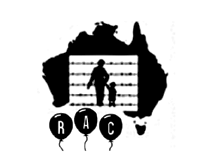An out-of-hours special Federal Court hearing today (Sunday, 19 Feb) has granted an injunction to prevent Serco and Border Force from seizing mobile phones from detainees in onshore immigration detention, just hours before the order was to come into effect.
Detainees in immigration detention faced blanket removal of their mobile phones at midnight tonight.
Lawyers at the National Justice Project, representing over 140 detainees, brought today’s case to get the injunction.
The action in the Federal Court follows the Federal Circuit Court granting of an interim injunction to one Villawood detainee on Friday.
What is at stake?
Border Force announced in November that phones and SIM cards of all detainees would be confiscated from midnight tonight. Detainees were concerned that mass searches would commence tonight. Advocates like Pamela Curr assert that the confiscations of personal property are illegal.
Who is Affected?
Asylum seekers in detention centres in Melbourne, Sydney, Yongah Hill and Christmas Island were threatened with confiscation of their mobile phones at midnight tonight, Sunday 19/2/17.
Until now people who arrived by air have had the right to mobile phones as long as they have no camera or recording facility. (People who came by boat have no right to a mobile for reasons never explained).
Border Force changes to existing policy would see all phones confiscated and anyone found in onshore detention with a phone potentially punished.
Why does this matter? Don’t they have landlines?
Long term refugee advocate Pamela Curr says:
“Mobile phones are a legal lifeline. They are a preventative factor against dangerous health crises, depression and suicides.
“People in locked detention need mobiles to be able to contact a lawyer or migration agent for timely legal advice.
“It is essential that people make contact with legal advice as beyond these times the applications are out of time.
“Landline phones can be accessed if the person has a phone card which is purchased from the canteen with points but these phones are not private and can be closed down at any time. People need mobiles to talk to friends and family when they are feeling lonely depressed and hopeless.
“The MITA population has increased significantly but the number of interview rooms for legal representatives remains at two making it harder for lawyers to access their clients in time and leaving lawyers and migration agents to haggle for an interview space to see a client and prepare an application.
“Some report being given only one hour because of space restriction”, Ms Curr added.
Contact:
Ian Rintoul 0417 275 713 or Pamela Curr 0417 517 075

